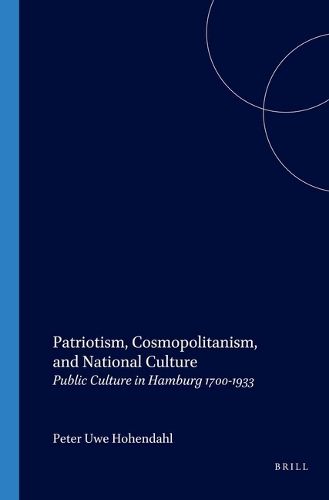Readings Newsletter
Become a Readings Member to make your shopping experience even easier.
Sign in or sign up for free!
You’re not far away from qualifying for FREE standard shipping within Australia
You’ve qualified for FREE standard shipping within Australia
The cart is loading…






The essays assembled in this volume grew out of a conference held at Cornell University in November 2001. The goal of the conference was to examine the claim that the city-state of Hamburg had a unique status in the cultural landscape of eighteenth and nineteenth-century Germany, a status based upon the city’s republican political constitution. Hamburg’s independence and its tolerant and cosmopolitan political traditions made it a focal point for progressive cultural developments during the period of the Enlightenment and after. The contributions collected here transcend traditional disciplinary boundaries by giving equal attention to literature, music, and theater, as well as to architecture and city planning. Key essays address the role that figures as diverse as C.P.E. Bach, Lessing, Klopstock, Heine, Brahms, and Thomas Mann played in shaping Hamburg’s exceptional quality as a center of culture. This volume will be of interest not only to scholars doing research on Hamburg, but also to anyone with an interest in the cultural history of eighteenth, nineteenth, and early twentieth-century Germany.
$9.00 standard shipping within Australia
FREE standard shipping within Australia for orders over $100.00
Express & International shipping calculated at checkout
The essays assembled in this volume grew out of a conference held at Cornell University in November 2001. The goal of the conference was to examine the claim that the city-state of Hamburg had a unique status in the cultural landscape of eighteenth and nineteenth-century Germany, a status based upon the city’s republican political constitution. Hamburg’s independence and its tolerant and cosmopolitan political traditions made it a focal point for progressive cultural developments during the period of the Enlightenment and after. The contributions collected here transcend traditional disciplinary boundaries by giving equal attention to literature, music, and theater, as well as to architecture and city planning. Key essays address the role that figures as diverse as C.P.E. Bach, Lessing, Klopstock, Heine, Brahms, and Thomas Mann played in shaping Hamburg’s exceptional quality as a center of culture. This volume will be of interest not only to scholars doing research on Hamburg, but also to anyone with an interest in the cultural history of eighteenth, nineteenth, and early twentieth-century Germany.